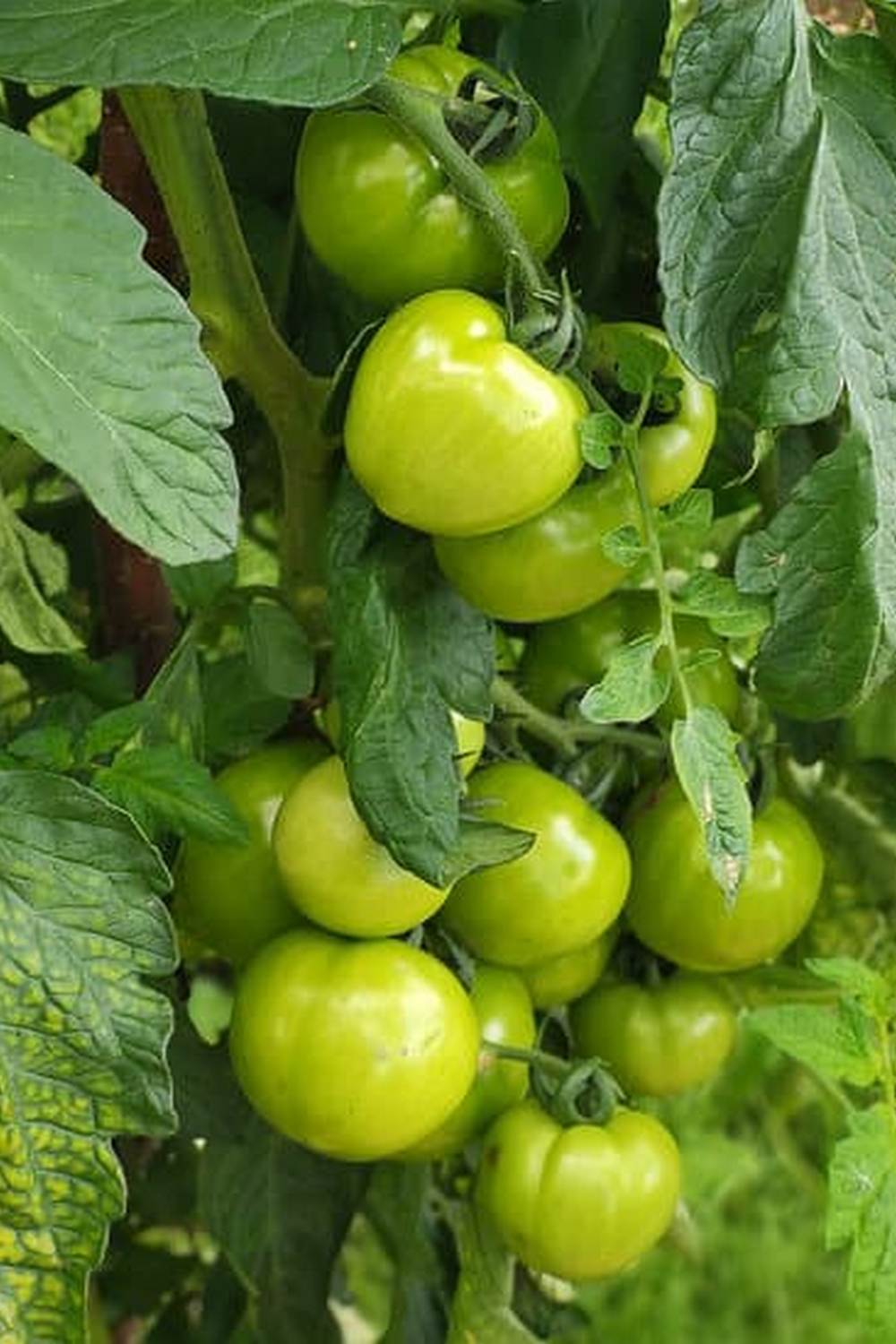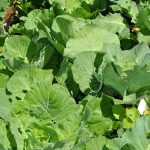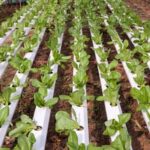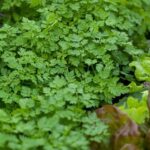Are you looking for a cost-effective and sustainable way to nourish your vegetable garden? Look no further than homemade fertilizer for vegetable gardens.
By using natural ingredients and household scraps, you can provide essential nutrients to your plants while reducing waste and promoting a healthier environment.
In this article, we will explore the benefits of homemade fertilizer for vegetable gardens, different types of homemade fertilizers for various vegetable varieties, how to make your own fertilizer from kitchen scraps, the best organic ingredients to use, tips for applying homemade fertilizer effectively, common mistakes to avoid, alternative methods for application, and the overall importance of homemade fertilizer for sustainable vegetable gardening.
Using homemade fertilizer in your vegetable garden offers numerous benefits. Not only does it nourish your plants with essential nutrients, but it also reduces reliance on chemical fertilizers, minimizes waste by repurposing kitchen scraps, and promotes sustainability in gardening practices. Whether you are growing tomatoes, peppers, lettuce, or carrots, homemade fertilizer can provide the necessary nutrients for robust growth and abundant harvests.
When it comes to making homemade fertilizer for your vegetable garden, there are various options to consider. From compost tea to eggshell powder and banana peel mulch, different vegetables may require specific nutrients that can be easily supplied through natural ingredients found in your home. By understanding the types of fertilizers that best suit your vegetable varieties, you can tailor your approach to ensure optimal growth and yield.
Benefits of Using Homemade Fertilizer for Vegetable Gardens
Using homemade fertilizer for your vegetable gardens can offer numerous benefits to both your plants and the environment. One of the main advantages is that it allows you to reduce waste by repurposing kitchen scraps and other organic materials. This not only helps in cutting down on household waste but also provides valuable nutrients to your garden soil.
In addition, homemade fertilizer is a cost-effective alternative to store-bought fertilizers, which can be expensive and often contain harmful chemicals. By using natural ingredients from your kitchen and garden, you can create a nutrient-rich fertilizer that promotes healthy plant growth without the need for synthetic additives.
Furthermore, homemade fertilizer for vegetable gardens is environmentally friendly as it reduces the reliance on commercial fertilizers that may contribute to pollution through runoff into water sources. The use of organic materials in homemade fertilizers also contributes to improving soil health and promoting sustainable gardening practices.
| Benefit | Description |
|---|---|
| Reduction of Waste | Repurposing kitchen scraps and organic materials helps in reducing household waste. |
| Cost-Effective | Homemade fertilizer is an economical alternative to store-bought options. |
Types of Homemade Fertilizers for Different Vegetable Varieties
When it comes to homemade fertilizer for vegetable gardens, there are various options that cater to the specific needs of different vegetable varieties. Here are some types of homemade fertilizers that you can use for your vegetable garden:
1. Compost: Compost is a fantastic all-round fertilizer that benefits most vegetable plants. It is made from food scraps, yard waste, and other organic matter. The nutrient-rich compost improves soil structure, promotes beneficial microorganisms, and provides essential nutrients for healthy vegetable growth.
2. Manure: Animal manure, such as cow or chicken manure, is an excellent source of nitrogen, phosphorus, and potassium. Different types of manure have varying nutrient levels, so it’s essential to research which type best suits the needs of your specific vegetables.
3. Worm Tea: Worm tea is a liquid fertilizer produced by soaking worm castings in water. It is rich in nutrients and beneficial microorganisms that help improve soil health and provide essential nutrition to vegetable plants.
4. Seaweed Fertilizer: Seaweed is packed with trace minerals and growth hormones that promote healthy plant growth. By creating a liquid fertilizer from seaweed extract, you can provide your vegetable garden with a natural boost of nutrients.
Using these different types of homemade fertilizers allows you to cater to the specific needs of your diverse range of vegetable crops while also avoiding harmful chemicals often found in commercial fertilizers. By choosing the right homemade fertilizers for your vegetable garden, you can nurture healthy plants and enjoy a bountiful harvest without relying on synthetic fertilizers.
How to Make Homemade Fertilizer From Kitchen Scraps
Making your own fertilizer from kitchen scraps is not only a great way to reduce waste, but it’s also an effective and budget-friendly way to nourish your vegetable garden. There are several methods for creating homemade fertilizer from items you might otherwise throw away, and each method has its own benefits for different types of vegetables.
To make homemade fertilizer from kitchen scraps, you can start by collecting items like eggshells, coffee grounds, vegetable peelings, and fruit rinds. These items are rich in nutrients that can benefit your vegetable plants. Here are a few methods for creating homemade fertilizer from these kitchen scraps:
- Compost Tea: Soak your kitchen scraps in water for a few days to create a nutrient-rich liquid that you can then use to water your plants.
- Eggshell Fertilizer: Crushed eggshells provide calcium and other minerals that can benefit plants like tomatoes, peppers, and squash.
- Vermicomposting: Use earthworms to break down your kitchen scraps into nutrient-rich compost that can be added to your soil.
By utilizing these methods, you’ll be able to create a sustainable source of nutrients for your vegetable garden while also minimizing the amount of waste that goes into landfills.
In addition to providing essential nutrients for your plants, using homemade fertilizer made from kitchen scraps also helps to improve the overall health of the soil in your vegetable garden. This natural approach to fertilizing ensures that the soil maintains a healthy balance of nutrients and microorganisms, which is essential for the long-term growth and productivity of your vegetable plants.
Making use of kitchen scraps as fertilizer also supports sustainable gardening practices by reducing reliance on commercial fertilizers that may contain harmful chemicals.
The Best Organic Ingredients for Homemade Vegetable Garden Fertilizer
When it comes to making homemade fertilizer for vegetable gardens, using the best organic ingredients is crucial for ensuring the health and growth of your plants. There are several organic materials that can be used to create effective homemade fertilizers, including compost, coffee grounds, eggshells, and banana peels. These ingredients not only provide essential nutrients to your vegetable garden but also help in improving soil structure and promoting microbial activity.
Compost is one of the best organic ingredients for homemade vegetable garden fertilizer. It is rich in essential nutrients such as nitrogen, potassium, and phosphorus, as well as beneficial microorganisms that contribute to the overall health of the soil. Coffee grounds are another excellent organic ingredient that can be used as a fertilizer. They are rich in nitrogen, which is essential for plant growth and development. Furthermore, coffee grounds can help in improving soil drainage and aeration.
In addition to compost and coffee grounds, eggshells and banana peels are also great organic ingredients for homemade vegetable garden fertilizer. Eggshells are a good source of calcium, which helps prevent blossom end rot in tomatoes and peppers.
Banana peels contain potassium, phosphorus, and other essential nutrients that promote healthy root growth and fruit development in vegetable plants. By using these organic ingredients in your homemade fertilizer, you can ensure that your vegetable garden gets the necessary nutrients it needs for optimal growth and productivity.
| Organic Ingredient | Nutrient Content |
|---|---|
| Compost | Nitrogen, Phosphorus, Potassium |
| Coffee Grounds | Nitrogen |
| Eggshells | Calcium |
| Banana Peels |
Tips for Applying Homemade Fertilizer to Your Vegetable Garden
Applying homemade fertilizer to your vegetable garden is an important step in ensuring the healthy growth and development of your plants. Whether you are using compost, liquid fertilizer, or other organic materials, it’s essential to apply them correctly for maximum effectiveness.
Timing and Frequency
When it comes to applying homemade fertilizer to your vegetable garden, timing is crucial. It’s best to apply fertilizers at the beginning of the growing season to provide nutrients for the plants as they start to grow. Additionally, you can provide additional feedings throughout the season as necessary, especially for heavy-feeding crops like tomatoes and peppers.
Application Methods
There are several methods for applying homemade fertilizer to your vegetable garden. For dry fertilizers such as compost or powdered eggshells, you can simply spread them evenly over the soil surface and then work them into the top few inches of soil. Liquid fertilizers, on the other hand, can be applied directly to the base of the plants or sprayed onto foliage.
Uniform Distribution
Regardless of the type of homemade fertilizer you are using, it’s important to ensure a uniform distribution throughout the garden bed. This can be achieved by spreading dry fertilizers evenly and watering them in well, or by mixing liquid fertilizers thoroughly before application. This will help provide an even supply of nutrients to all of your vegetable plants.
By following these tips for applying homemade fertilizer, you can provide your vegetable garden with the necessary nutrients for healthy growth and bountiful harvests. Remember that each type of vegetable may have specific nutrient requirements, so be sure to tailor your fertilization schedule accordingly. With proper application, your homemade fertilizer will contribute to a thriving and sustainable vegetable garden.
Common Mistakes to Avoid When Using Homemade Fertilizer
When using homemade fertilizer for vegetable gardens, there are some common mistakes that gardeners should avoid in order to ensure the health and productivity of their plants. One common mistake is over-applying homemade fertilizer, as this can lead to nutrient imbalances in the soil, which can be harmful to the plants.
It’s important to follow recommended guidelines for application rates and frequency, and to monitor the health of your plants to ensure they are not being negatively impacted by excessive fertilizer.
Another mistake to avoid is using the wrong type of homemade fertilizer for specific vegetable varieties. Different vegetables have varying nutrient needs, so it’s important to tailor your homemade fertilizer mix to the specific needs of the vegetables you are growing. Research the nutritional requirements of each type of vegetable in your garden and adjust your homemade fertilizer recipe accordingly.
Additionally, it’s crucial to properly store and handle homemade fertilizer ingredients. Using spoiled or contaminated ingredients can introduce pathogens or toxins into your garden, which can harm plants and even pose a risk to human health if consumed. Store your homemade fertilizer ingredients properly in sealed containers and use sanitary practices when handling them.
By avoiding these common mistakes when using homemade fertilizer for your vegetable garden, you can ensure that your plants receive the nutrients they need in a safe and effective manner. Proper application of homemade fertilizer will contribute to healthy, thriving vegetable plants that produce high-quality harvests.
Alternative Methods for Homemade Fertilizer Application in Vegetable Gardens
Compost Tea
One alternative method for applying homemade fertilizer to your vegetable garden is by using compost tea. Compost tea is a liquid fertilizer that is made by steeping compost in water and extracting its nutrients. To make compost tea, simply fill a bucket with water and add a shovelful of compost.
Let the mixture sit for a few days, stirring occasionally, until it develops a rich, earthy smell. Once ready, strain the liquid and apply it to your vegetable garden as you would any other liquid fertilizer. Compost tea is an excellent way to provide a quick nutrient boost to your plants.
Vermicompost
Another alternative method for applying homemade fertilizer is by using vermicompost, which is essentially worm poop. Vermicompost is an incredibly nutrient-rich organic material that can be used as both a soil amendment and a fertilizer.
You can create your own vermicompost at home by setting up a worm bin and feeding the worms kitchen scraps, such as fruit and vegetable peels, coffee grounds, and eggshells. The worms will break down the organic matter into nutrient-rich castings that can be applied directly to your vegetable garden soil or made into a liquid fertilizer by steeping them in water.
Top Dressing
Top dressing is another effective method for applying homemade fertilizer to your vegetable garden. This involves spreading a layer of homemade compost or other organic materials on top of the soil around your plants. As the top dressing breaks down, it releases its nutrients into the soil, providing long-term fertility for your vegetables.
Top dressing also helps improve soil structure and moisture retention while suppressing weed growth. This method can be particularly beneficial when growing heavy-feeding vegetables like tomatoes, peppers, and squash.
By exploring alternative methods for applying homemade fertilizer to your vegetable garden, you can ensure that your plants receive the nutrients they need to thrive while also promoting sustainable gardening practices. Whether you choose to use compost tea, vermicompost, or top dressing, these alternative methods can help you achieve healthy and productive vegetable gardens without relying on synthetic fertilizers or harmful chemicals.
Conclusion
In conclusion, homemade fertilizer for vegetable gardens plays a crucial role in sustainable gardening practices. By using natural and organic ingredients, gardeners can nourish their plants while reducing their environmental impact. Homemade fertilizers are not only cost-effective but also easy to make from kitchen scraps and other organic materials.
The use of homemade fertilizer for vegetable gardens offers numerous benefits, including improved soil health, increased nutrient availability, and reduced reliance on chemical-based products. Additionally, by utilizing homemade fertilizers, gardeners can contribute to the overall health of their local ecosystem and minimize the release of harmful substances into the environment.
Overall, the process of making and applying homemade fertilizer for vegetable gardens is a rewarding and environmentally-friendly practice that supports the long-term health and productivity of plants. As gardeners continue to prioritize sustainability in their gardening efforts, homemade fertilizers will undoubtedly play a crucial role in promoting healthier crops and minimizing the environmental impact of traditional gardening practices. By embracing this approach, gardeners can enjoy bountiful harvests and contribute to a more sustainable future for all.
Frequently Asked Questions
What Is the Best Homemade Fertilizer for Vegetables?
The best homemade fertilizer for vegetables is compost. Compost is rich in nutrients and organic matter, making it an excellent natural fertilizer for vegetables. It improves soil structure and provides a slow-release source of nutrients.
How Do I Fertilize My Vegetable Garden Naturally?
To fertilize your vegetable garden naturally, you can use compost, manure, or organic mulches. These natural fertilizers will improve soil fertility and provide essential nutrients to your vegetable plants without the use of synthetic chemicals.
What Is the Best Homemade Fertilizer for Tomatoes?
The best homemade fertilizer for tomatoes is a combination of eggshells and used coffee grounds. Eggshells provide calcium, which helps prevent blossom end rot in tomatoes, while coffee grounds add nitrogen to the soil, promoting healthy growth and fruit production in tomato plants.

If you’re looking to get into vegetable gardening, or are just looking for some tips on how to make your current garden better, then you’ve come to the right place! My name is Ethel and I have been gardening for years. In this blog, I’m going to share with you some of my best tips on how to create a successful vegetable garden.





